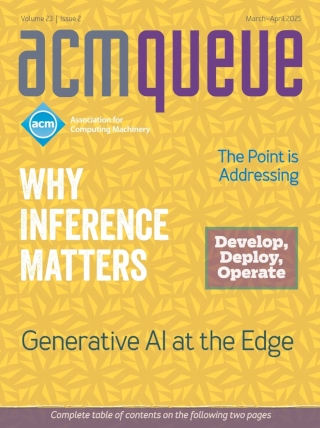
OCaml for the Masses:
Why the next language you learn should be functional
Functional programming is an old idea with a distinguished history. Lisp, a functional language inspired by Alonzo Church’s lambda calculus, was one of the first programming languages developed at the dawn of the computing age. Statically typed functional languages such as OCaml and Haskell are newer, but their roots go deep.
Debugging on Live Systems:
It’s more of a social than a technical problem.
I’ve been trying to debug a problem on a system at work, but the control freaks who run our production systems don’t want to give me access to the systems on which the bug always occurs. I haven’t been able to reproduce the problem in the test environment on my desktop, but every day the bug happens on several production systems. I’m at the point of thinking about getting a key logger so I can steal the passwords necessary to get onto the production systems and finally see the problem "in the wild." I’ve never worked for such a bunch of fascists in my entire career.
The Software Industry IS the Problem:
The time has come for software liability laws.
One score and seven years ago, Ken Thompson brought forth a new problem, conceived by thinking, and dedicated to the proposition that those who trusted computers were in deep trouble. I am, of course, talking about Thompson’s Turing Award lecture, "Reflections on Trusting Trust." Unless you remember this piece by heart, you might want to take a moment to read it if at all possible.
Java Security Architecture Revisited:
Hard technical problems and tough business challenges
This article looks back at a few of the hardest technical problems from a design and engineering perspective, as well as some tough business challenges for which research scientists are rarely trained. Li Gong offers a retrospective here culled from four previous occasions when he had the opportunity to dig into old notes and refresh his memory.



